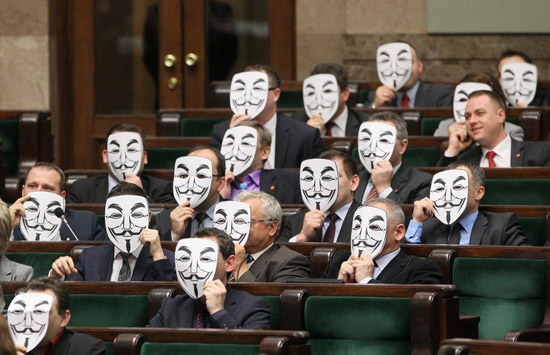
From SOPA to NOPA to ACTA: A Week In The World Wide Web Wars0
Posted In Activism,Blog,Entertainment,Geek,Internuts,Politics
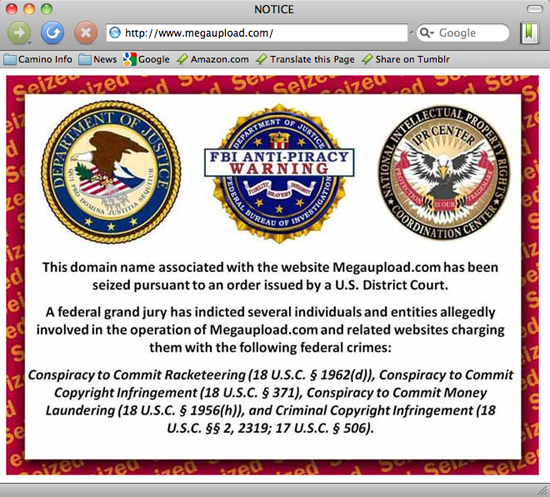
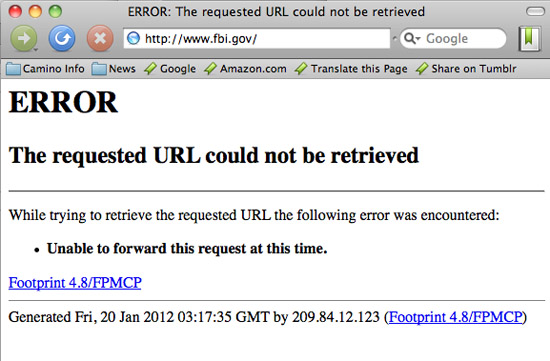
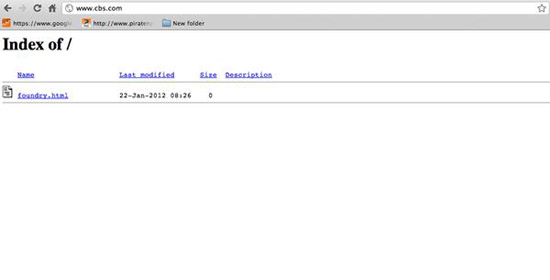
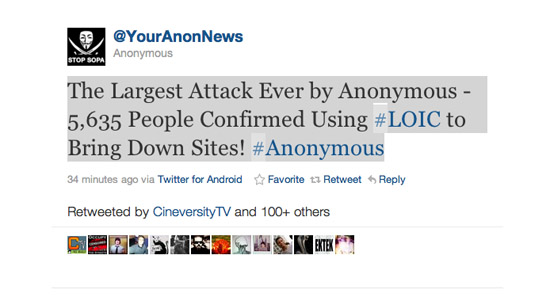
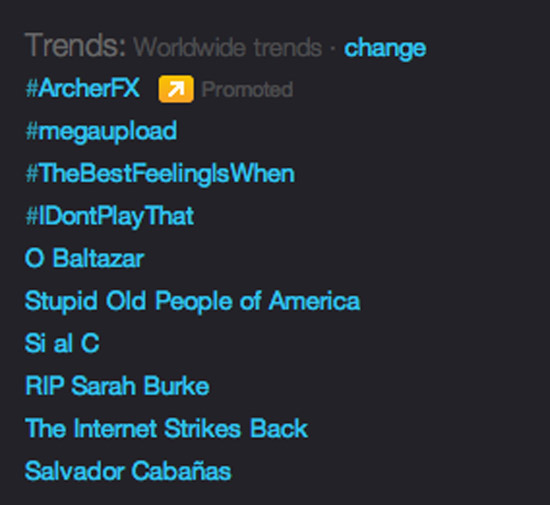
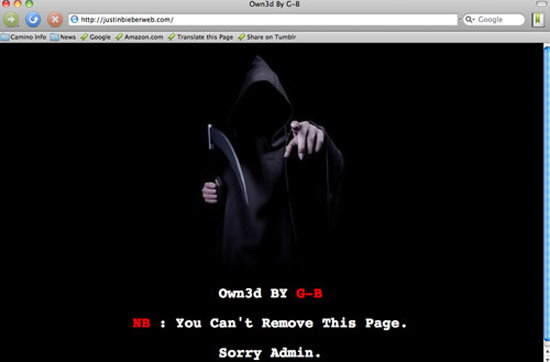
This past week would have been pure lulz online, had the denizens of the web not been fighting over something so humorless. But then there’s nothing funny about spying on your citizens, denying them free speech, and criminalizing vast swathes of them for good measure, but that’s what our government, and the corporations that are under the impression that they control it, are trying to do.
Following last week’s historic Internet Blackout Day, which saw the likes of Wikipedia, Reddit, and BoingBoing go dark, it was apparent to everyone that SOPA and PIPA needed to be put on ice – everyone that is, except the Democrats, who have been suckling at Hollywood’s teet for way to long, and appear to have got their mouths stuck there.
But with SOPA’s markup hearing and PIPA’s Senate vote both indefinitely postponed, the Feds apparently decided they didn’t need the ugly censorship sister acts to go after online targets already in their sights. It was therefore no coincidence that the day after Blackout Day, the US Department of Justice moved against file sharing site Megaupload.
Their choice of target to make an example of might have seemed strange, especially when considering that Pirate Bay is perhaps a more recognizable name to those outside of the downloading massive. However, the decision to make an exhibition of Megaupload was likely motivated by more then a little machismo (or more accurately the public loss of it) on behalf of the entertainment industry who had long been lobbying for such action, and who had been taunted, publicly humiliated, and deemed impotent by the file sharing giant. (Megaupload had posted a promotional clip on YouTube which featured numerous major label artists including P Diddy, Kanye West, and Chris Brown, and a feud involving disputed DMCA takedown missives, lawsuits, and online mudslinging had ensued.)
What was perhaps most disturbing about the US government’s action against Megaupload, was that they made the site disappear like a renditioned prisoner – without any due process. And following the arrests of the site’s founder Kim Dotcom and three other key executives in New Zealand, and two further arrests in Europe, it became very apparent that when it comes to copyright infringement the long arm of America’s law extends far beyond our nation’s borders.
Retribution, courtesy of Anonymous and #OpMegaupload, was swift, and within hours numerous websites were “tango down.” Online shop windows successfully owned included those for government agencies (justice.gov, usdoj.gov, and fbi.gov), entertainment trade/lobbying organizations (riaa.org, mpaa.org, and bmi.com), and media corporations (universalmusic.com, wmg.com, and cbs.com).
As YourAnonNews noted, the non-consensual blackout day was “the largest attack ever by Anonymous” with “5,635 people confirmed using LOIC to bring down sites!” Gawker subsequently gave some insight as to how the mass coordinated DDoS attack was achieved by way of links that launched LOICs unbeknownst to those that clicked on them – the lack of intention in theory meaning accidental DDoS’ers should have the law on their side. (In CBS’s case, a little hackery also seemed to be involved, since their site, unlike the others, at one point appeared to have been totally wiped, though we’re not sure what exactly they did to achieve this special treatment. Answers via Twitter please.)
But despite shots fired against government and corporate vessels by pro-pirate and freedom friendly ships, the battle to contain and control the web continues as other file sharing sites curtail their activities in the hopes of avoiding Megaupload’s fate. PIPA and SOPA may be dead in the water, but two even worse pieces of legislation are on the horizon.
The misleadingly named Protecting Children from Internet Pornographers Act would use kiddie porn as a premise to monitor EVERYONE’S online activity (and what politician can appear to be pro-pedophilia by voting against it?), while the Anti-Counterfeiting Trade Agreement (ACTA) contains similar Big Brother surveillance provisions and contains SOPA-like language that requires that signatory nations* monitor and censor the internet within their domain. So while we internuts may have won out against the tyranny of PIPA and SOPA, the fight to retain freedom on the world wide web has only just begun.
Turn out, tune in, and log on, it’s going to be a lulzy ride.
**Update: Thursday, January 26, 2012**
Despite protests spearheaded by the Polish, ACTA was signed by 22 European Union member states today. They join 8 nations (Australia, Canada, Japan, Republic of Korea, Morocco, New Zealand, Singapore, and the United States) who had already signed the treaty this past fall.
